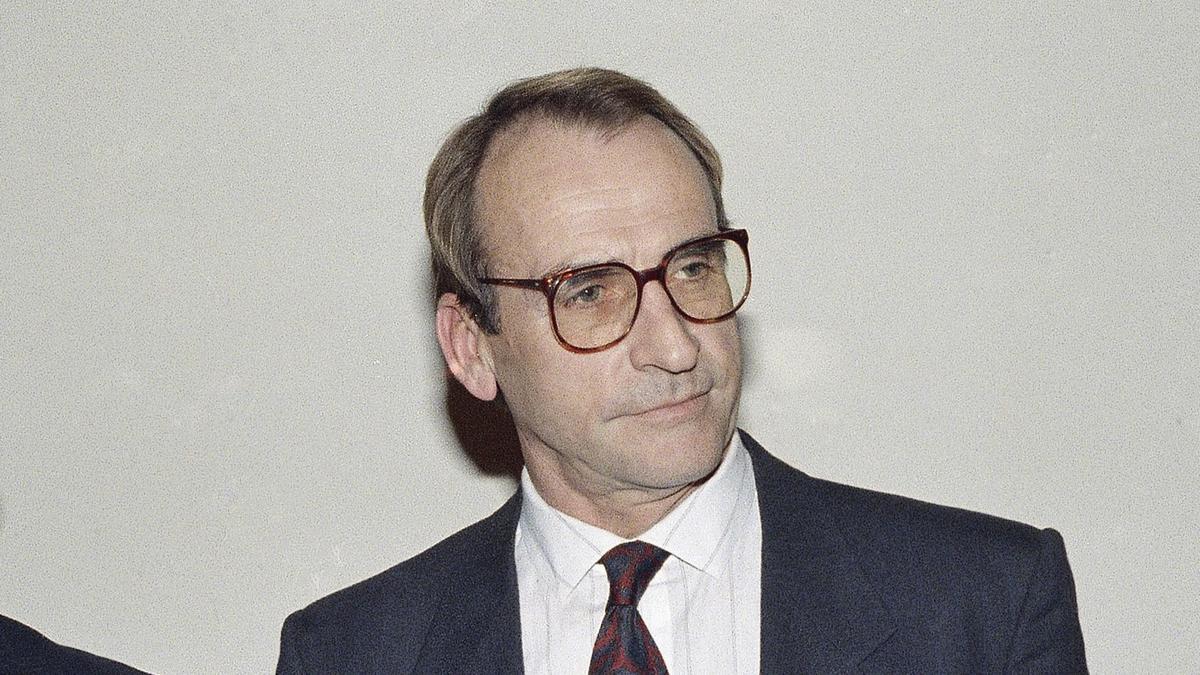
James Sikking, a veteran actor best known for his roles as a tough police lieutenant in “Hill Street Blues” and a loving father in “Doogie Howser, M.D.,” has passed away at the age of 90. Sikking died of complications from dementia, as confirmed by his publicist Cynthia Snyder in a statement on Sunday evening.
Born on March 5, 1934, in Los Angeles as the youngest of five children, Sikking’s early acting career included an uncredited part in Roger Corman’s “Five Guns West” and a minor role in an episode of “Perry Mason.” His talent soon landed him guest spots in numerous popular television series of the 1970s, including “Mission: Impossible,” “M.A.S.H.,” “The F.B.I.,” “The Rockford Files,” “Hawaii Five-O,” “Charlie’s Angels,” “Eight is Enough,” and “Little House on the Prairie.”
In 1981, Sikking’s career took a significant turn with the debut of “Hill Street Blues.” This show was a fresh take on the traditional police procedural genre. Sikking portrayed Lt. Howard Hunter, a disciplined Vietnam War veteran who led the Emergency Action Team of the Metropolitan Police Department in an unnamed city. Though primarily a drama, Sikking’s character was often used for comic relief due to his uptight nature and quirks, making his performance memorable to audiences.
Sikking drew inspiration for his role as Lt. Hunter from a real-life drill instructor he encountered during his military service, which interrupted his studies at the University of California, Los Angeles. The drill instructor’s steel-like appearance and rigid demeanor left a lasting impression on Sikking, shaping his portrayal of Hunter. “The drill instructor looked like he had steel for hair and his uniform had so much starch in it, you knew it would sit in the corner when he took it off in the barracks,” Sikking recalled in an interview with The Fresno Bee in 2014.
Initially, “Hill Street Blues” faced low ratings and limited recognition, due in part to its debut during a dual Hollywood strike. However, NBC decided to keep the show on air, noticing that it attracted a specific demographic described as the “Esquire audience” — educated individuals with a certain level of income. The show’s unique look, multiple storylines, and detailed character development eventually earned it critical acclaim and a dedicated fan base, allowing it to run until 1987.
One of the show’s most dramatic moments came in a December 1983 episode when Sikking’s character, Lt. Hunter, contemplated suicide. This cliffhanger generated significant buzz, akin to the famous “Who shot J.
.R.?” mystery from “Dallas.” The suspense was short-lived, however, as TV supplements accidentally revealed that Hunter had been saved, calming his fans’ anxieties.
Sikking’s work on “Hill Street Blues” earned him an Emmy nomination for Outstanding Supporting Actor in a Drama in 1984. Reflecting on his time on the show, Sikking described it as a lot of hard work but a deeply enjoyable experience. “We always had three different stories running through each episode, which means you had to listen and you had to pay attention because everything was important,” he told Parade.com in 2014.
In addition to “Hill Street Blues,” Sikking played Captain Styles in “Star Trek III: The Search for Spock” (1984). Though he wasn’t particularly enthusiastic about the role, he was intrigued by the prospect of a brief stint on set. “I was not into that kind of outer space business,” he admitted to startrek.com in 2014. Despite his initial reluctance, Sikking later appreciated the role’s impact on his career and the continued fan recognition it brought him.
Following the end of “Hill Street Blues,” Sikking joined the cast of “Doogie Howser, M.D.,” reuniting with Steven Bochco, who co-created both “Hill Street Blues” and the Neil Patrick Harris-starring sitcom. Sikking appeared in nearly 100 episodes of the show, playing the kindhearted father of the titular teenage doctor.
Sikking’s personal life was marked by his marriage to Florine Caplan, with whom he had two children and four grandchildren. By the time the box set of “Hill Street Blues” was released, he had mostly retired from acting, though he made memorable appearances in “Curb Your Enthusiasm,” “Fever Pitch,” and “Made of Honor.” His final roles were in a 2012 episode of “The Closer” and the film “Just an American” the same year.
Beyond his acting career, Sikking was dedicated to charity work, frequently participating in celebrity golf tournaments. In 1982, he even attended the ribbon-cutting for a health center in a small Iowa town, delighting the crowd with his humor. “Actually, I came to get something from you — air I can’t see,” he quipped, referring to the town’s clean air compared to Los Angeles.
Reflecting on his career, Sikking acknowledged the unique allure of acting. “Acting is a license to do self-investigation. It’s a great ego trip to be an actor,” he told startrek.com in 2014. Approaching the end of his life, he expressed a sense of contentment with the “obscurity” retirement afforded him. “The condiment of my life is good fortune,” he concluded.












